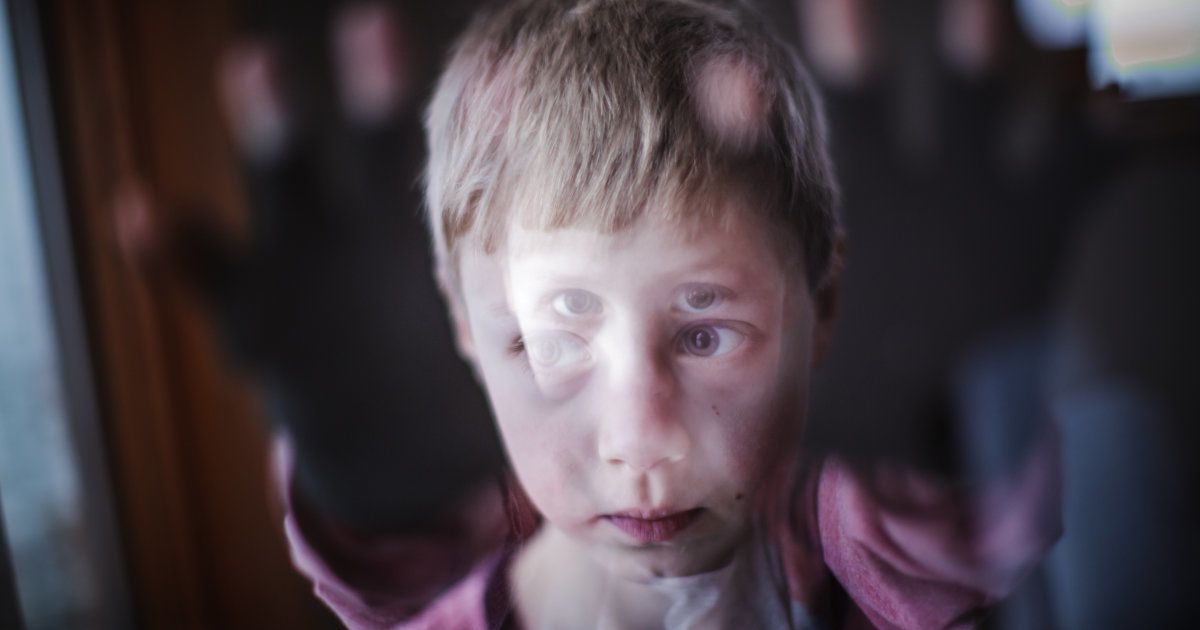Guide To The Symptoms Of Dissociative Identity Disorder (DID)
Dissociative identity disorder (DID) is a complex mental health condition that typically occurs after severe childhood trauma. The condition used to be called multiple personality disorder, but researchers have since found patients don't actually have several personalities. Instead, they have a sense of self that has become fractured enough that the different aspects are no longer integrated with each other. Every DID case is different, and researchers are still looking into the neurological and psychological components. The disorder has been badly misrepresented in media; individuals with dissociative identity disorder are no more likely to be violent or predatory than the average population. By understanding the symptoms of DID, individuals better understand the differences between fact and fiction.
Multiple Or Split Personalities

The most characteristic symptom of DID individuals recognize is multiple or split personalities. However, calling them 'personalities' is questionable. Rather than having multiple personalities, an individual with dissociative identity disorder has several alternate senses of self that aren't unified as a whole. These senses of self are called 'alters.' Alters typically each have their own name, speech, distinct body language, and memories. When another alter 'fronts,' meaning they are the one controlling the body and interacting with the world, they typically don't have access to the memories of the other alters. This can lead to blackouts, which is where the dissociative part of the disorder's name comes in. There hasn't been enough research proving exactly how alters form neurologically or why. The most prevalent theory is different alters are a form of self-protection. A protective alter may endure abuse so the main 'host' doesn't have to experience those memories.
Uncover more symptoms of DID now.
Anxiety And Panic Attacks

Dissociation is a maladaptive way of coping with anxiety. DID is more complex than an average anxiety disorder, and treatment also typically needs to be more complex. But anxiety, panic attacks, and dissociation go hand-in-hand. When a patient dissociates, whether they're letting a new alter take over or simply ceasing to keep contact with the world, they're trying to escape a situation causing extreme stress or pain. Dissociative identity disorder develops when children dissociate to escape serious trauma, often compartmentalizing their senses of self to survive. When individuals with DID encounter situations that make them anxious, they may dissociate, though they may also have typical symptoms of anxiety and panic attacks. Panic attacks look a lot like a heart attack, with a racing heart and squeezing feeling in the chest. They pass within ten minutes. General anxiety can last longer and may include sweating, nausea, elevated heart rate, and shallow breathing.
Keep reading to learn more about the warning signs of dissociative identity disorder now.
Mood Swings

Mood swings are very common in individuals with DID. Feelings of emotional volatility and vulnerability tend to run rampant. Many DID patients don't realize they have the disorder, especially if they're not aware of their alters. For this reason, it's common for dissociative identity disorder to be misdiagnosed as bipolar disorder. The mood swings with DID can take a few different forms. Moods may seem to shift entirely if the alter who's currently fronting changes. From the inside, though, there's not a volatile swing. Instead, it's more like swapping who's in the driver's seat, and the new driver happens to have different emotions. If an individual with dissociative identity disorder is triggered, they may suddenly feel like their emotions and senses have flattened. This is more typical dissociation. There may also be mood swings because of the way different alters have developed psychologically.
Discover additional symptoms of DID now.
Insomnia

Individuals with dissociative identity disorder often experience insomnia. The exact reasons for insomnia vary from person to person, and it's possible that some DID patients don't have insomnia at all. When there's a level of awareness of the other alters, the patient's mind might race incessantly with thoughts that don't feel like theirs. It may feel like their head is a loud and crowded place. Anxiety can also contribute to insomnia, and DID patients can be more sensitive to anxiety triggers than an average neurotypical person. Some individuals with dissociative identity disorder are prone to slipping into fantasies and daydreams, which can keep them from going to sleep. DID patients also report more strange sleeping experiences than neurotypical individuals. These may include vivid or lucid dreams, sleep paralysis, and sleepwalking.
Uncover another symptom of dissociative identity disorder now.
Hallucinations

Hallucinations sometimes occur with DID, but this isn't always the case. One of the most common misconceptions is that DID and schizophrenia are the same condition. Schizophrenics often see and hear things that aren't there. With classic presentations of dissociative identity disorder, patients don't interact mentally with their alters. However, as more individuals are being diagnosed with DID and reporting their experiences, there has been a shift in understanding. Before, a core component of a DID diagnosis was that the alters were not in communication and were unaware or partially unaware of each other. However, some individuals with dissociative identity disorder report they can 'hear' their alters conversing in the form of auditory hallucinations.